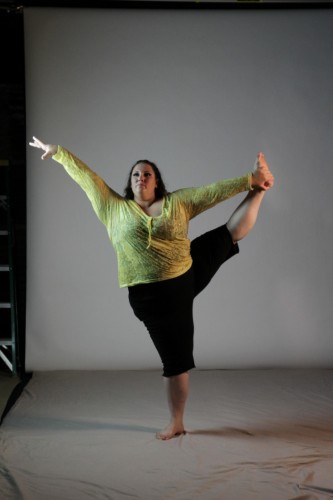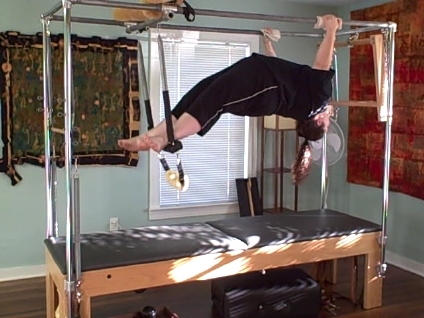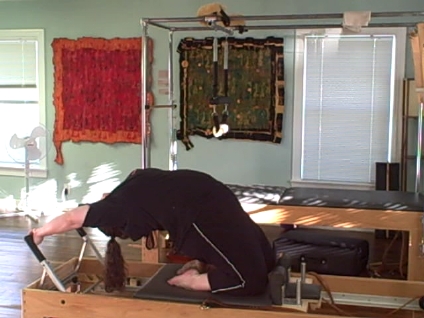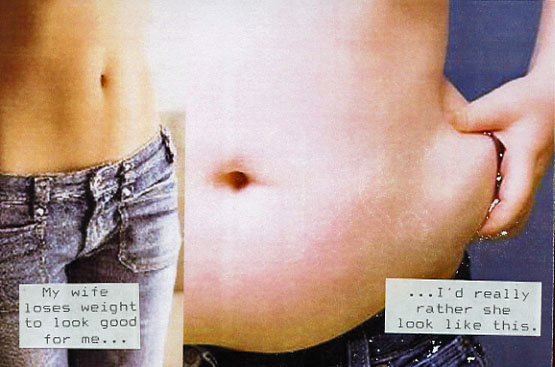The title question haunts me. I’m a feminist, a recovered anorexic and, yes, I’m on a diet.
Because of my experience with anorexia, I know how horrible things can get when one starts obsessing about “bad foods” and setting (and re-setting) weight-loss goals. My eating disorder made me miserable, and I have lasting health issues that could eventually shorten or lessen the quality of my life.
That said, recovering from anorexia made me a feminist. While battling for my sanity and health, I became increasingly pissed off at the THIN=BEAUTIFUL*GOOD environment we live in. Our culture’s valorization of thinness caused well-meaning friends to compliment me on my rapid weight-loss, literally up until the weeks that I entered treatment. Even after entering treatment, some people didn’t think I was skinny enough to be “really” anorexic. Worse, my awful then-boyfriend hinted that it would be great if I could recover without gaining any weight, “since you’re not, like, scary-thin.”
In the end, I got better, got angrier, and ultimately re-arranged my life so that I could stay healthy and continue fighting-the-good-fight as my career.
We feminists typically view dieting — and, particularly, the diet industry — as an expression of patriarchy that is bad for women. As a scholar who studies the harmful effects of our culture’s beauty standards, I agree with this. Diets (which FAIL 95% of the time) drain women’s energy, happiness, and wallets – often while risking our health. Hence, “RIOTS, NOT DIETS!” has become a well-known rallying cheer for many feminists.
Dieting can also be understood as a type of “patriarchal bargain” (an individual woman’s decision to accept gender rules that disadvantage women-as-a-group, in exchange for whatever power she can wrest from the system). By strategically losing weight, we accept the THIN=BEAUTIFUL*GOOD equation (which implies FAT=UGLY*BAD), and propel ourselves into positions of greater social advantage. On an individual level, having “thin privilege” feels empowering. (Recall, Oprah Winfrey — arguably the MOST powerful woman in the world — has described “going to the gym when I really prefer wine and chips” as her greatest accomplishment!) Yet, these THIN powered feelings depend upon a system of inequality in which power/privilege/respect are denied to others on the basis of these standards.
Frustratingly, given the patriarchal bargain of weight-loss, being radically anti-diet as a political stance doesn’t always fit comfortably as a personal stance. Because we live in a society that punishes women for being “fat,” even the most dedicated feminists report struggles with body image. The threat of becoming a martyr for this cause (i.e., by voluntarily giving up ”thin-privilege,” if we’ve got it) can be terrifying. Add to this the personal fact that I’ve gained an (subjectively) uncomfortable amount of weight in the past year by neglecting to care for my body, and suddenly I’m facing a conundrum.
So what’s a good feminist to do? Here’s how I’ve proceeded.
Step 1: Shun Mirrors for 1 Year
I was saying mean things to my reflection in the mirror and wanted to lose weight, urgently. My body insecurities were reaching a dangerous peak, and it scared me. Was I on the verge of a relapse? 10 years ago, I’d probably have gone on an extreme diet, but this time something blissfully self-protective kicked in. I still did something extreme, but in a vastly more body-positive direction: I decided to shun mirrors for a year. Yep, you read that correctly. I’ve embarked on a quest to go without mirrors for 365 days.
Thus far it’s been enlightening (and challenging), but hasn’t completely resolved my body image issues.
Step 2: Revamp Eating and Exercise Habits to be Healthfully Moderate
So, in addition to shunning mirrors, I’ve decided to monitor my food and exercise until I’m back on track. As an advocate of the “Health at Every Size” movement (which stresses the importance of healthful behaviors but rejects the idea that there is a universal “healthy weight”), I’m going to try to judge my “success” based on my behaviors, instead of my weight. My goal is to consciously re-engage in healthful eating habits and joyful activity, and then accept my body size and shape wherever it settles. As much as I’m still tempted to “get skinny,” I know I can live with this, and (more importantly) I know my body can live through it.
But I still hope I lose some weight.
So, what do you think? If “fat is a feminist issue,” can a feminist diet?
————————
Kjerstin Gruys is a Ph.D. Candidate in the Sociology Department at UCLA where she’s writing her dissertation on clothing size standards in the fashion industry. At her blog, A Year Without Mirrors, she’s chronicling her commitment to avoid her reflection for 365 days.
If you would like to write a post for Sociological Images, please see our Guidelines for Guest Bloggers.
















